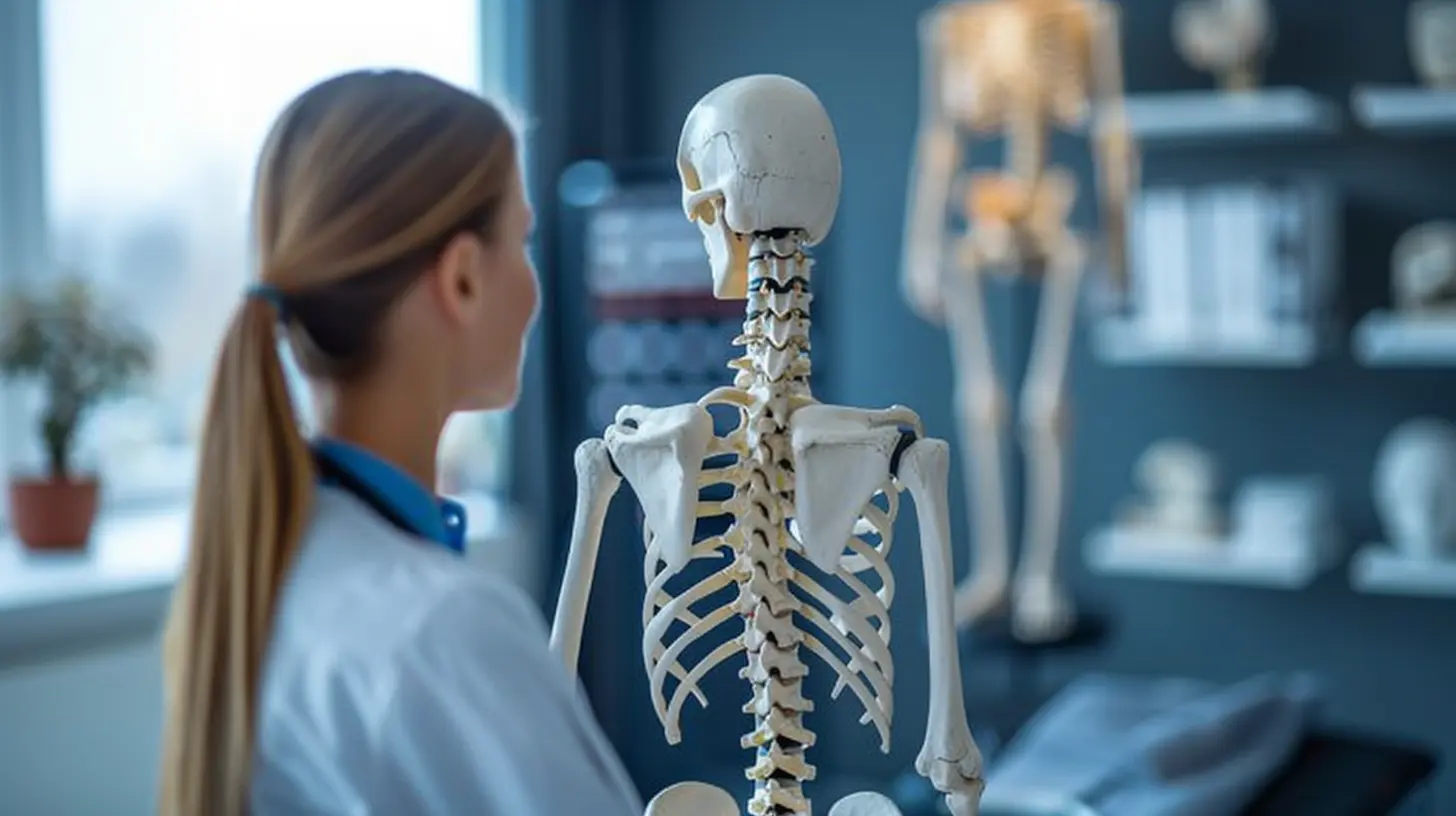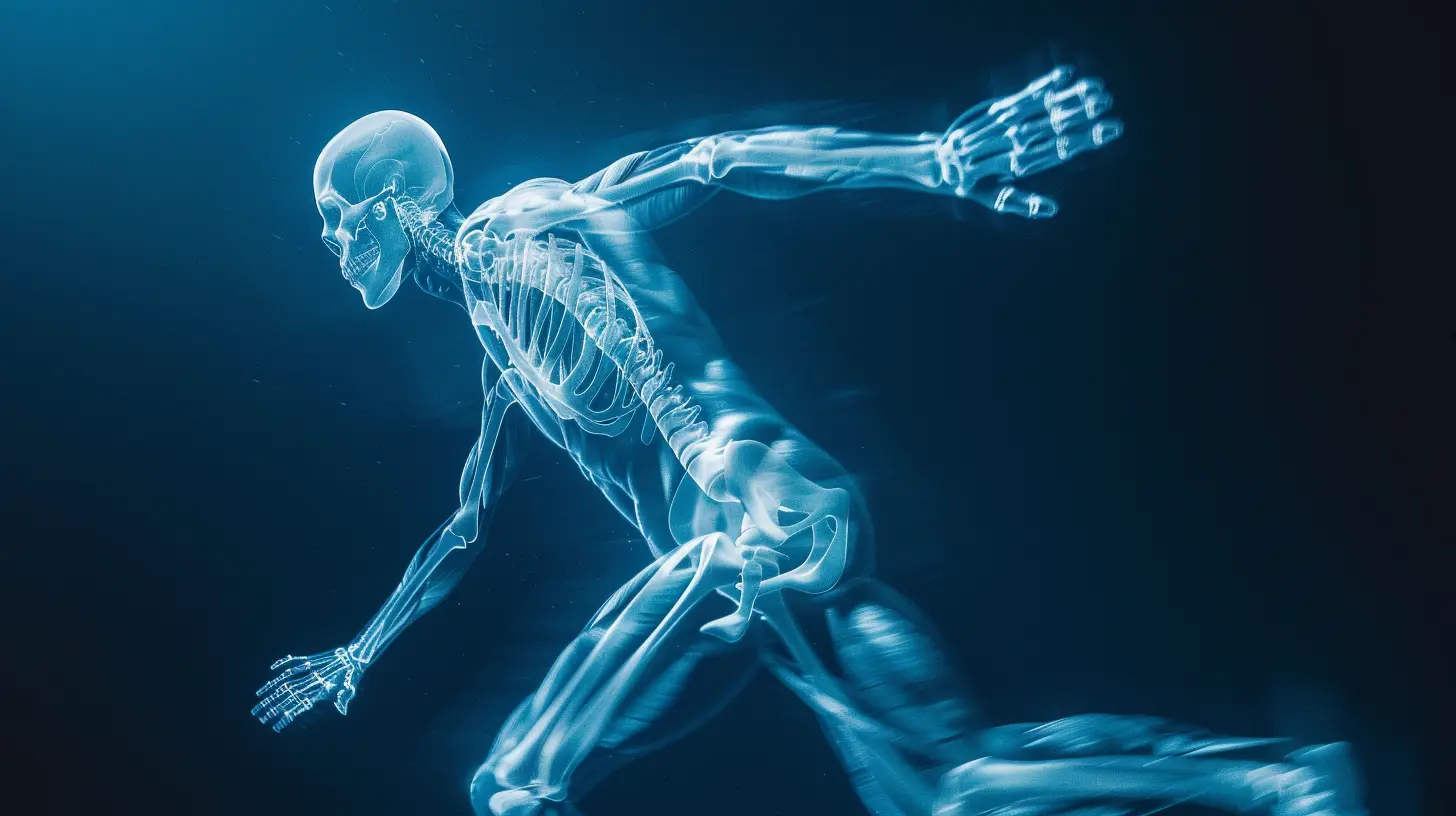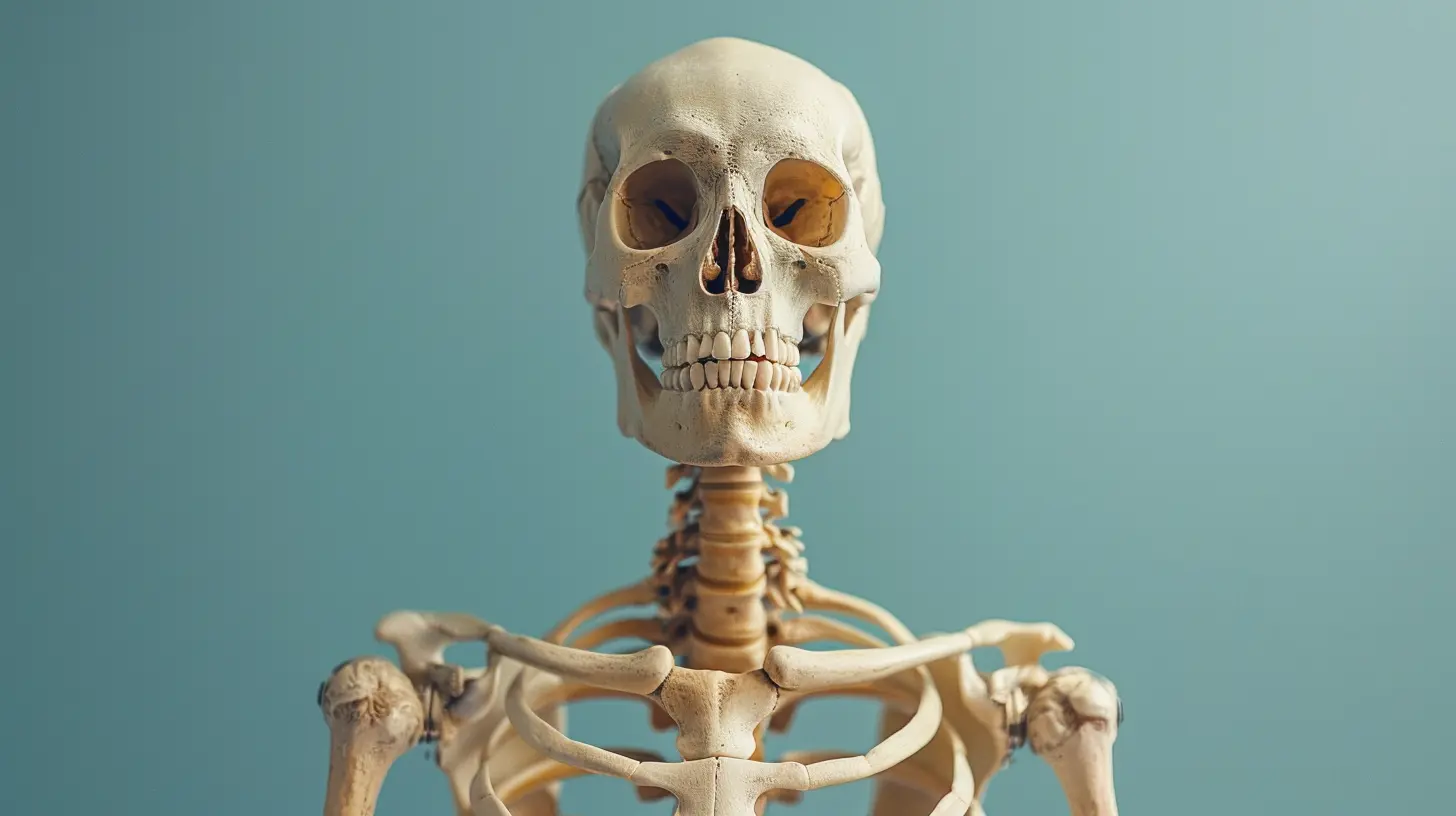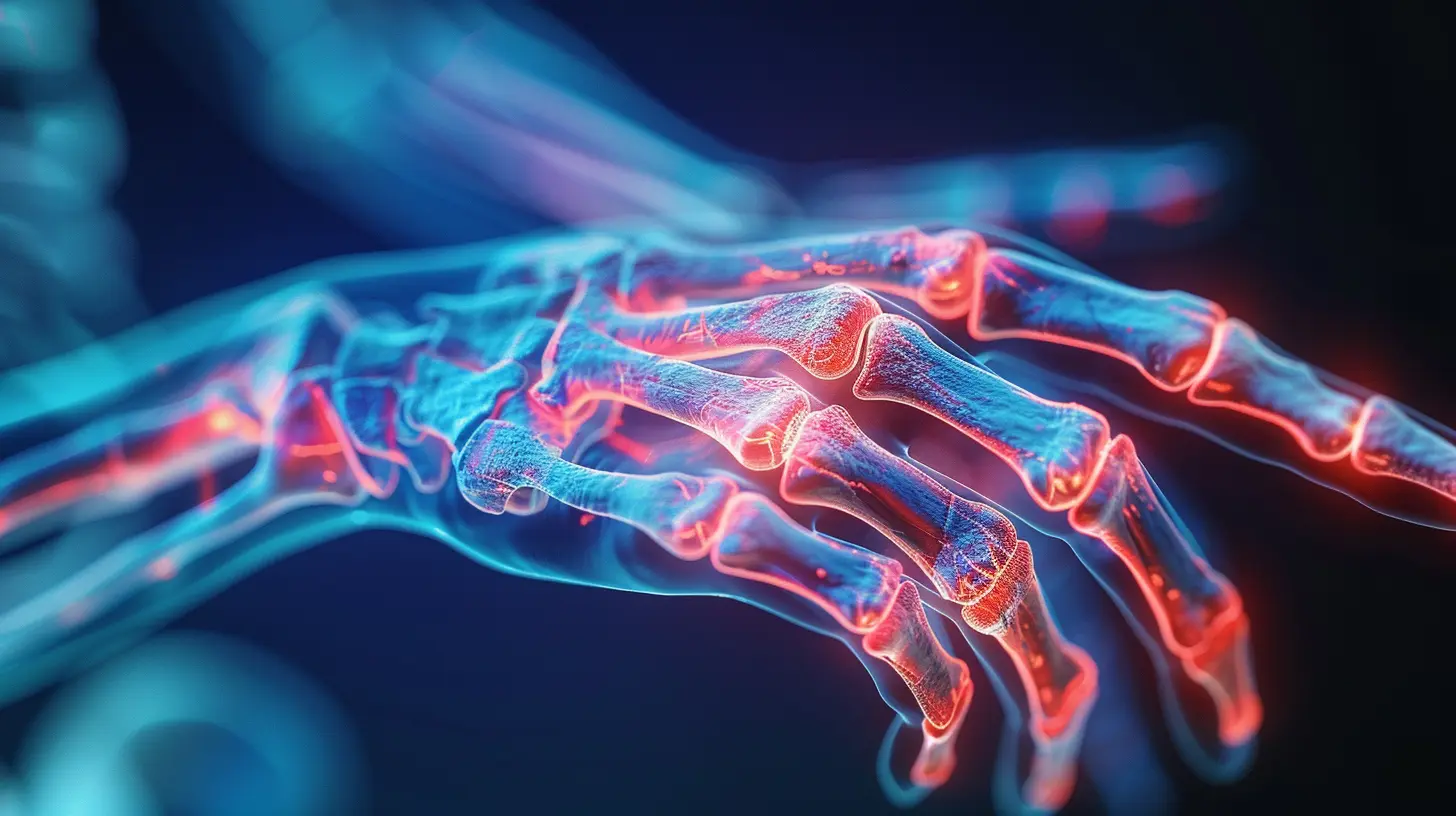How to Identify the Early Signs of Weak Bones
3 June 2025
Bone health is something we often take for granted—until it becomes a problem. Weak bones can sneak up on you, silently increasing your risk of fractures and osteoporosis. The tricky part? You may not notice the warning signs until it's too late.
So, how can you tell if your bones are losing strength before a major issue arises? Let’s dive into the early signs of weak bones and what you can do to keep them strong.

Why Bone Health Matters
Your bones aren’t just rigid structures holding your body together—they're living, constantly changing tissues. They store essential minerals like calcium and phosphorus, support your muscles, and protect your vital organs.As we age, our bones naturally lose density. However, if bone loss happens too quickly, it can lead to osteoporosis, a condition that makes bones brittle and fragile. Identifying the early signs of weak bones can help prevent serious complications down the road. 
Early Signs of Weak Bones You Shouldn't Ignore
1. Frequent Fractures or Bone Breaks
Breaking a bone from a minor fall or bump? That’s a red flag. Bones should be strong enough to withstand everyday activities. If you're experiencing fractures from small accidents, your bones may already be weaker than they should be.2. Height Loss or a Stooped Posture
Have you noticed that you're getting shorter? Losing height over time can be a sign of vertebral fractures caused by osteoporosis. A hunched or stooped posture (known as kyphosis) often develops when the spine's bones weaken and collapse.3. Joint and Bone Pain
Chronic bone or joint pain, especially in the hips, back, or wrists, could be your body’s way of telling you something’s off. While pain can result from many conditions, persistent discomfort might indicate weakening bones.4. Weak Grip Strength
Struggling to open a jar or carry groceries? Your grip strength is closely linked to your overall bone health. Weaker bones often lead to decreased muscle strength and function.5. Receding Gums
This one might surprise you, but your jawbone plays a crucial role in keeping your teeth in place. If your gums are pulling back, it could be a sign that your jawbone is losing density, which may indicate overall bone loss in your body.6. Brittle Nails
Weak, brittle nails could be more than just a cosmetic issue. They may be a sign of mineral deficiencies, particularly calcium and collagen—both essential for strong bones.7. Muscle Weakness and Cramps
Muscles and bones work together to support your body. If your muscles feel weaker than usual or you're experiencing frequent cramps, your bones might not be absorbing enough essential nutrients, such as calcium and magnesium.8. Poor Posture and Back Pain
Do you find yourself slouching more often? Poor posture isn’t just about bad habits—it can also point to weak bones. If you suffer from persistent back pain, it may indicate deteriorating spine health.
What Causes Weak Bones?
Understanding what leads to weak bones can help you take action before serious problems arise. Here are some common culprits:Lack of Calcium and Vitamin D
Calcium is the building block of bones, while vitamin D helps your body absorb calcium. A deficiency in either can lead to bone loss over time.Sedentary Lifestyle
Bones need movement and resistance to stay strong. If you lead a mostly inactive lifestyle, your bones might be weakening without you realizing it.Hormonal Changes
Women experience a drop in estrogen levels during menopause, which speeds up bone loss. Similarly, low testosterone levels in men can also contribute to weaker bones.Excessive Alcohol and Smoking
Drinking too much alcohol or smoking regularly can interfere with your body’s ability to absorb essential nutrients, making your bones more fragile.Certain Medical Conditions and Medications
Conditions like rheumatoid arthritis, thyroid disorders, and long-term use of corticosteroids can weaken bones over time.
How to Strengthen Your Bones Naturally
If you've noticed signs of weak bones, don’t panic! There are plenty of ways to improve bone health naturally.1. Eat a Bone-Boosting Diet
Your bones need the right nutrients to stay strong. Make sure your diet includes:- Calcium-rich foods: Dairy products, leafy greens, almonds, and fortified foods.
- Vitamin D sources: Sunlight exposure, fatty fish, egg yolks, and fortified milk.
- Magnesium and phosphorus: Nuts, seeds, whole grains, and beans.
- Protein: Lean meats, fish, legumes, and dairy.
2. Get Moving
Weight-bearing and resistance exercises help strengthen bones. Try:- Walking or jogging
- Weight lifting
- Yoga or Pilates
- Dancing
Even just 30 minutes of activity a few times per week can make a difference.
3. Limit Bone-Weakening Habits
- Cut back on soda, as high phosphorus levels can interfere with calcium absorption.- Reduce alcohol intake and quit smoking.
- Limit processed foods that may lead to inflammation and bone loss.
4. Get Regular Bone Density Tests
If you're at risk for osteoporosis or noticing early signs of weak bones, talk to your doctor about a bone density test (DEXA scan). This simple test can assess your bone strength and help catch issues early.5. Maintain a Healthy Weight
Being either underweight or overweight can affect bone health. A balanced diet and regular exercise can help you maintain a healthy weight and keep your bones strong.When to See a Doctor
If you’re experiencing frequent fractures, persistent bone pain, or unexplained height loss, it's time to seek medical advice. A doctor can assess your risk factors and recommend lifestyle changes, supplements, or medications to help maintain bone strength.Final Thoughts
Your bones play a crucial role in keeping you strong and mobile. The earlier you recognize the signs of weak bones, the sooner you can take action to prevent osteoporosis and fractures.Small changes—like eating nutrient-rich foods, staying active, and cutting back on unhealthy habits—can make a world of difference. Remember, bone health isn't just about aging gracefully; it's about staying strong and active for years to come.
Keep an eye on early warning signs, take care of your bones, and stay ahead of any potential issues. Your future self will thank you!
all images in this post were generated using AI tools
Category:
Healthy BonesAuthor:

Laura Hudson
Discussion
rate this article
3 comments
Max Barron
Signs of weak bones? If your dance moves start resembling a wobbly giraffe!
June 18, 2025 at 3:56 PM

Laura Hudson
That's a fun observation! However, it's essential to look for other signs like frequent fractures, back pain, or loss of height. If you have concerns, consider consulting a healthcare professional.
Daniel Reynolds
Thank you for this insightful article on identifying early signs of weak bones! It's so important to stay informed about our health. I appreciate the tips and look forward to implementing them for stronger bones. Keep it up!
June 9, 2025 at 3:36 PM

Laura Hudson
Thank you for your kind words! I'm glad you found the article helpful and informative. Here's to stronger bones!
Sari Cruz
Recognizing early signs of weak bones is crucial for proactive health management and prevention strategies.
June 3, 2025 at 4:47 PM

Laura Hudson
Absolutely, early recognition of weak bones is essential for implementing effective prevention strategies and maintaining long-term health. Thank you for highlighting this important aspect!



